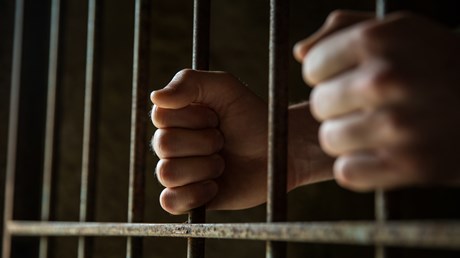Why “prison Pentecostalism” is flourishing among criminals, gang members, and others on society’s margins.

Whatever doctrine might be preached, when there is Christian worship within the walls of prisons—among the world’s damned—an ancient theology of hell is being recovered, incarnated on earth. It is Christ’s descent to the dead, his triumphant ekklesia conquering the gates of Hades.
We don’t recognize our lived theologies that quickly, though, because we don’t use those words—the damned, the dead—when talking about the human beings we lock away in prisons or dispose of through legal violence. We say “criminals,” “offenders,” “convicts,” “felons.”
But up-and-coming religious studies scholar Andrew Johnson, in his dynamic first book, If I Give My Soul: Faith Behind Bars in Rio de Janeiro, discovers in the poorest Brazilian favelas, or hillside shantytowns, a fresh and direct term for the souls a society deems worthy of torment: the “killable people.”
To kick off his more general investigation of religion in Brazil’s prisons, Johnson spent two weeks living inside two different lockdown facilities. He slept in crowded cells with the inmates. He ate, played soccer, and conducted interviews, while observing and attending religious activities. And he quickly narrowed his study to the primary faith expression that was pouring into the grim prisons from the outside community: Pentecostalism. It is flourishing within the hardest gang-populated units.
For the next several years, Johnson tracked the shape, history, and power of Pentecostalism as “the faith of the killable people.” In Rio, these are the urban poor, those with black and brown skin, those living in the swelling, improvised slum mazes known as favelas, …
Source: Christianity Today Most Read